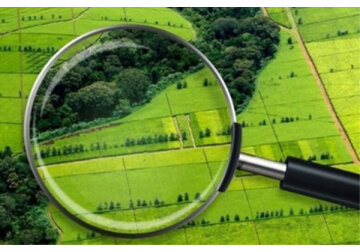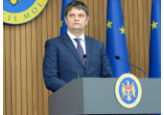
The Parliament of Moldova approved in the first reading the draft of the new Land Code, which retains the ban on the sale of land to foreigners.
According to the document, a foreign individual or legal entity or a legal entity whose authorized capital contains foreign investments or which has as an administrator or founder (participant), or shareholder foreign individuals or legal entities or legal entities whose authorized capital contains foreign investments, or beneficial owners cannot acquire or hold ownership of agricultural or forestry lands on the basis of legal acts during the lifetime of the owners, under the threat of the nullity of the act of acquisition. If they receive such lands by inheritance, by a court decision, or by mortgage, the owner is obliged to alienate them within 1 year from the date of acquisition of ownership of the land. The draft of the new Land Code of Moldova was developed by the Ministry of Agriculture and Food Industry, and the new edition of this document is aimed at creating a regulatory framework for regulating land relations, adapted to new realities. The purpose of the new Land Code is to regulate the legal regime of the land fund and land relations established between individuals. A new classification of agricultural land is also proposed, as well as rules for changing the order of their use. Thus, owners of agricultural land will be able to build on these lands warehouses, refrigerators intended for storing agricultural products, workshops for the repair and storage of agricultural machinery, livestock farms, infrastructure facilities and primary processing of products, agrotourism boarding houses without changing the purpose of the land. This can be done on the basis of approved project documentation, as well as a construction permit issued by the local public authority. Another provision of the draft provides for the prohibition of changing the intended purpose of especially valuable agricultural lands and lands of forestry, water resources, historical, cultural and natural reserves, historical monuments, immovable archaeological monuments, as well as the implementation of any activities there that are contrary to their purpose. The draft new Land Code also regulates methods for consolidating agricultural land, as well as actions taken if the owners have not formalized inheritance documents for these lands and do not maintain them in proper condition. Thus, according to the new rules, if agricultural land is not cultivated and is not maintained in an appropriate phytosanitary condition for more than 2 years in a row, the local government will initiate actions to hold the owner accountable. If the owner does not respond to the summons, the mayor's office will have the right to dispose of the land in question and order its lease under clearly regulated conditions in order to prevent the adjacent lands from being affected by diseases, weeds and pests. Similarly, landowners will be required to take measures to prevent and reduce the impact of soil degradation in accordance with soil conservation measures within agricultural practices. At the same time, the new Land Code contains a number of provisions taken from the Law on state regulation of land ownership, the state land cadastre and land monitoring, the Law on the standard price and procedure for the purchase and sale of land, as well as from other regulations in this area, which will be repealed from the date of entry into force of the new code, that is, after 12 months from the date of its publication in the Monitorul Oficial. In addition, the new Land Code provides for the creation of a Land Cadastre information system, which will keep records of lands by categories and modes of use. The new Land Code also contains rules regarding state control in the field of land relations, resolution of land disputes and liability for non-compliance with land legislation. State control over the use and protection of lands will be exercised by the government and local public authorities.// 09.11.2023 — InfoMarket.







